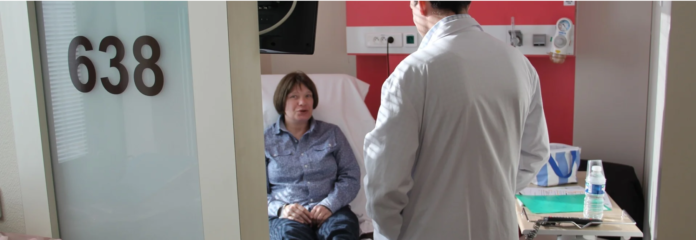By Joke Kujenya
CANCER REMAINS one of the deadliest diseases worldwide, claiming nearly 10 million lives in 2020 alone, according to a World Health Organization (WHO) report.
The weight of a cancer diagnosis alters lives in an instant.
Each year, millions confront the emotional, physical, and financial toll of battling the disease.
Behind the staggering statistics lie real human stories—families upended, dreams interrupted, and communities stretched thin.
The global burden of cancer continues to grow, and health experts warn that without significant intervention, the crisis will deepen.
The International Agency for Research on Cancer (IARC) projects a grim rise in annual cases, estimating a 77% increase to 35 million by 2050.
The reasons are manifold: an ageing population, lifestyle factors, environmental hazards, and gaps in healthcare systems.
The IARC states that while early detection and treatment advancements offer hope, access to these lifesaving interventions remains unequal.
Breast, lung, colorectal, prostate, and stomach cancers rank among the most diagnosed globally.
Lifestyle choices such as tobacco use, alcohol consumption, poor diet, and physical inactivity heighten risks.
Also, air pollution and cancer-causing infections, like human papillomavirus (HPV) and hepatitis, further complicate the battle.
Low-and middle-income countries also bear a disproportionate share of the burden, with limited screening, diagnostic tools, and treatment options exacerbating late-stage diagnoses.
Children Are Not Spared
Each year, approximately 400,000 children develop cancer, yet survival rates vary drastically depending on geographic location and healthcare access.
In some regions, curable childhood cancers turn fatal due to delayed diagnosis and inadequate treatment.
Cervical cancer, for example, remains the most common cancer in 23 countries, despite vaccines and preventive measures being widely available in wealthier nations.
Prevention remains a critical yet underutilised tool. Up to 50% of cancers could be prevented through lifestyle modifications and early intervention strategies.
Yet many at-risk populations lack awareness or access to preventative care.
Regular screenings for breast, cervical, and colorectal cancers significantly improve survival rates, but infrastructural and financial limitations hinder widespread implementation.
Treatment inequalities highlight glaring global health disparities. While over 90% of high-income nations offer comprehensive cancer treatment, fewer than 15% of low-income countries do.
The absence of accessible radiotherapy, chemotherapy, and palliative care leaves millions without options.
Pain management, a fundamental aspect of cancer care, is also a challenge, with many patients in terminal stages suffering due to limited access to morphine and other essential pain relief medications.
The fight against cancer is not just a medical challenge but a socioeconomic one. Rising healthcare costs, loss of productivity, and financial strain on families create ripple effects across societies.
Governments and health organisations worldwide continue to push for policies that promote early detection, affordable treatment, and equitable healthcare access.
Investment in cancer research has led to breakthroughs in targeted therapies and immunotherapy, offering new hope to patients.
World Cancer Day
This serves as a reminder of the progress made and the work still ahead.
The WHO says it is a day to honour those affected, celebrate medical advancements, and reinforce commitments to closing the care gap.
Without urgent action, the WHO reiterates that the world faces an overwhelming cancer epidemic.
As such, bridging disparities in treatment and early detection remains the most effective strategy to reduce the burden and save millions of lives.





